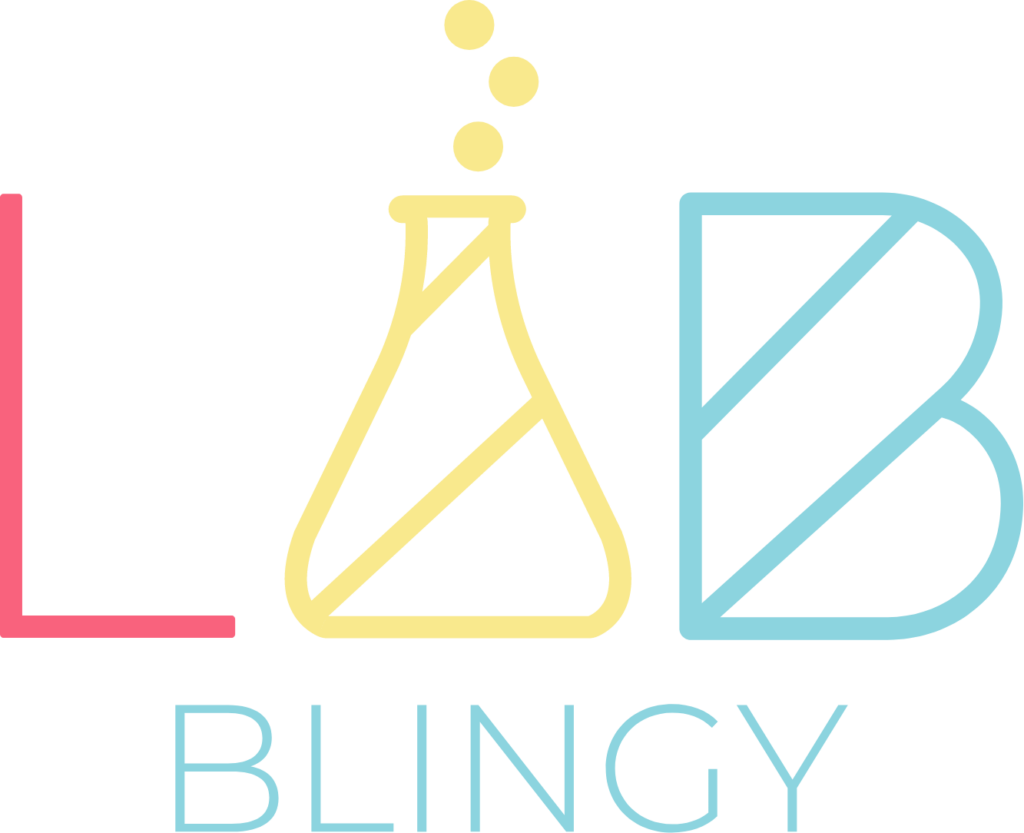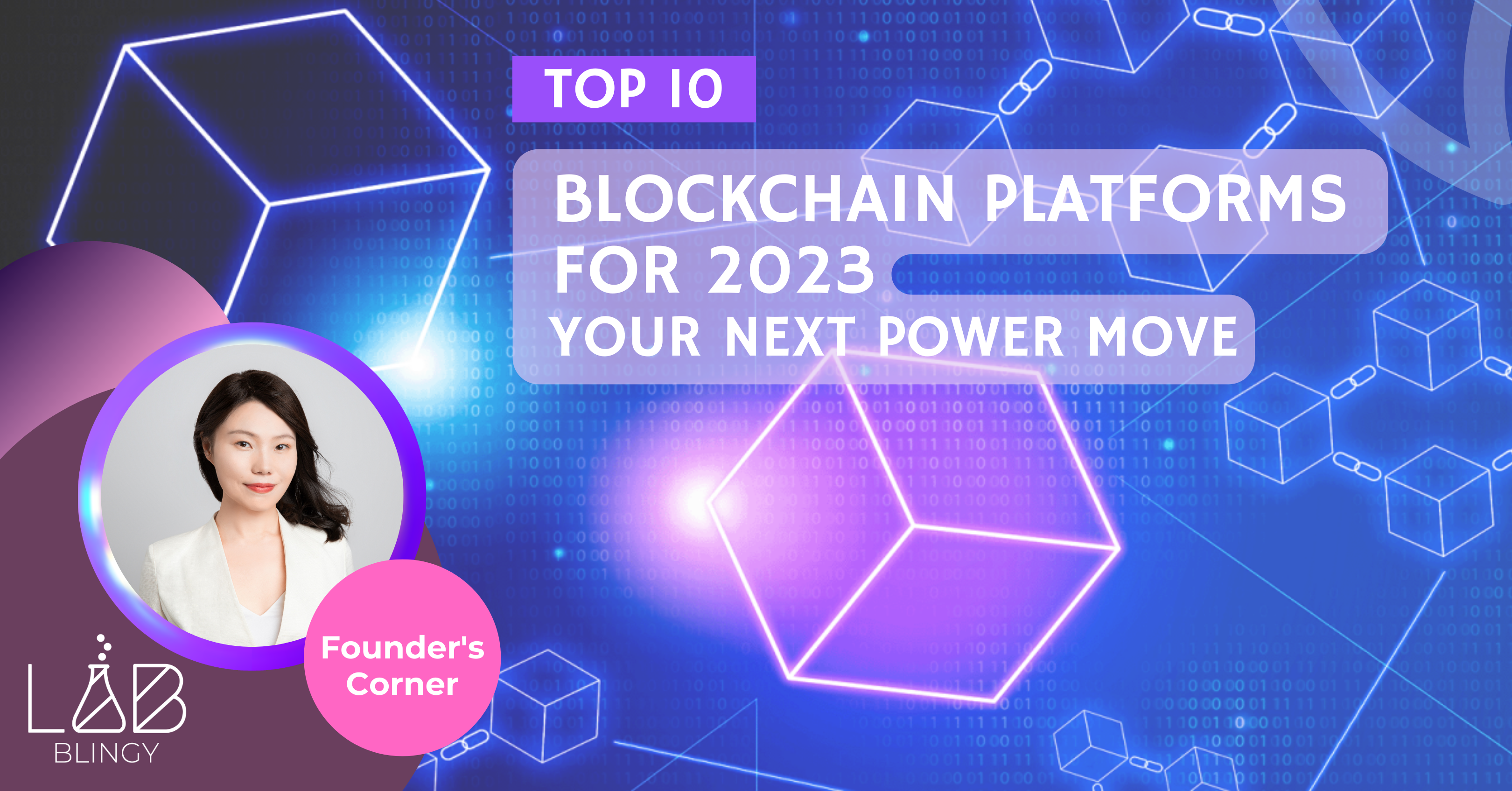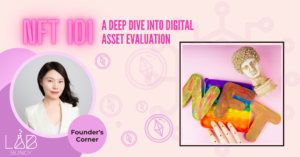Blockchain and crypto have made an incredible impact on our world. Blockchain technology is disrupting the traditional financial system by helping to rethink our structures for digital identities, and only a few ever considered investing in bitcoin until 2013. Mainstream blockchain technology has led to the explosion of many more Initial Coin Offerings (ICOs) and blockchain companies, reaching the public’s attention. Something in this industry can impact your life within the next ten years, from lower prices to faster transactions.
Blockchain can make global commerce more efficient, secure, and transparent. The technology behind it is distributed ledger technology (DLT), which has been used for many years under different names in several industries, including healthcare and banking.
Overview of the Top 10 Blockchain Platforms for 2023
Several companies and organizations are working on and growing DLT projects in 2023; here, we have identified 10 of the top blockchain platforms that should prove helpful to you when learning about this exciting technology.
Ethereum
Ethereum is a platform that utilizes the blockchain and allows developers to build decentralized applications (dApps), smart contracts, NFTs, cryptocurrencies, and more. Created in 2015, Ethereum has become one of the most popular blockchain platforms, operating on a decentralized, peer-to-peer network that provides secure and transparent transactions.
Ethereum uses its programming language, Solidity, to write and execute smart contracts and dApps that run on its network, which operates on a proof-of-work consensus mechanism. Ethereum’s token, Ether (ETH), is used to pay for transactions and computational services. The platform hosts decentralized finance (DeFi) applications and prediction markets with various use cases. Its actively developed and improved, making it a leading platform in the blockchain space.
IBM Blockchain Platform
IBM Blockchain Platform is a fully integrated enterprise-grade blockchain platform built on the Hyperledger Fabric blockchain framework. It provides a complete solution for developing, deploying, and managing secure blockchain networks, with features like high performance, flexible network membership, and strong privacy. It also includes tools for managing network administration and smart contract development and a user-friendly interface for monitoring network activity and managing transactions. The IBM Blockchain Platform enhances various industries, including financial services, supply chain management, and healthcare.
Hyperledger Fabric
Hyperledger Fabric is a “permissioned” blockchain platform for developing applications using smart contracts and distributed ledger technology. Released by the Linux Foundation in 2016, and provides a platform for developers to build trusted applications for enterprise-level scenarios. Its modular design allows full use of the processing chain through tools such as chain code protocols and an encryption model based on consensus mechanisms.
Hyperledger Sawtooth
Hyperledger Sawtooth is an open-source blockchain platform developed by the Linux Foundation for the Hyperledger project. It is designed for flexibility and scalability, offering unique consensus algorithms and customizable architecture for various use cases. Sawtooth is well-suited for enterprise applications and provides features like permissions, smart contract execution, and support for multiple programming languages. The supply chain and digital asset management industries commonly use Hyperledger Sawtooth.
Corda
Corda is an open-source blockchain platform for businesses to manage and execute financial transactions. R3 developed Corda, a consortium of more than 200 financial institutions, and provides a secure, private, and scalable solution for sharing data and processing transactions between organizations. Corda is based on blockchain technology and uses smart contracts to enforce the terms of an agreement. Still, it differs from traditional blockchains in that it only shares data with parties with a legitimate need to know. This feature allows Corda to offer improved privacy and security compared to public blockchains.
Stellar
Stellar is an open-source blockchain platform designed to provide a decentralized platform for fast and affordable cross-border transactions of digital assets. The platform operates on the Stellar Consensus Protocol for efficient and secure transactions and supports smart contracts. Stellar prioritizes accessibility and inclusion, making cross-border transactions possible for individuals and financial institutions, even in developing countries. The network is also known for its strong security measures, including preventing double-spending and advanced encryption for privacy protection. Stellar is a versatile platform focusing on accessibility, security, and affordability for financial institutions, developers, and individuals.
Polkadot
Polkadot is an open-source project that seeks to transform blockchain by introducing more complexity into its infrastructure. It enables users to create sidechains that operate as independent networks governed by the parent chain. Sidechains give participants control over their private networks while benefiting from the safeguards provided by public ledgers like the Bitcoin blockchain network.
Ripple
Ripple is an open-source protocol designed to facilitate peer-to-peer transactions and support virtual currency payments between individuals and institutions worldwide without the need for intermediaries or manual management by regulators. Ripple uses its distributed ledger technology for compliance tracking. It allows efficient transfers in any fiat currency through its XRP token or other currency formats like USD or EUR using settlement options like SWIFTNET or SEPA transfers.
Quorum
Quorum is a blockchain platform based on Ethereum, explicitly designed for business use. Its focus on scalability and security, such as private state blocks, allows for flexible data sharing among partners with the option for public data visibility, all while meeting global privacy requirements. This privacy option makes it ideal for financial services companies looking to use cutting-edge technology while complying with industry regulations.
The platform has ready-made features like smart contracts, token storage, and custom UI designs. A team of experienced database administrators and blockchain experts also maintains it. Quorum supports decentralized cloud computing and has a private consensus mechanism, making it a good choice for large companies and multinational consortiums. The platform continually improves through audits and new protocol updates and supports high-throughput fintech applications and NFTs.
Avalanche
Avalanche is a decentralized platform that allows developers to build applications on existing blockchains with minimal user fees quickly. Avalanche also has a consensus process that only requires some nodes in the network to have synchronous information. Its team pushes for further innovation through validator clients and upgradeable logic modules. This platform has great potential for increased adoption, improved stability, and reduced risk for asset investors.
Conclusion
In conclusion, blockchain technology has come a long way and is constantly evolving to meet the changing needs of businesses and individuals. The top 10 blockchain platforms for 2023 are analyzed and evaluated, considering security, scalability, and adaptability factors. The above list shows that each platform has its strengths and weaknesses, and the right choice ultimately depends on your specific business needs and goals.
As the world continues to embrace this innovative technology, the possibilities and opportunities are endless. As you make your next power move in the blockchain world, it is essential to carefully evaluate the available platforms and choose the one that aligns with your vision and mission.
So, how can you leverage the power of blockchain to disrupt your industry and drive growth for your business?
Follow my Twitter @JoyyuanWeb3 to learn about the trends of Blockchain, Crypto, Metaverse, and Web3!








